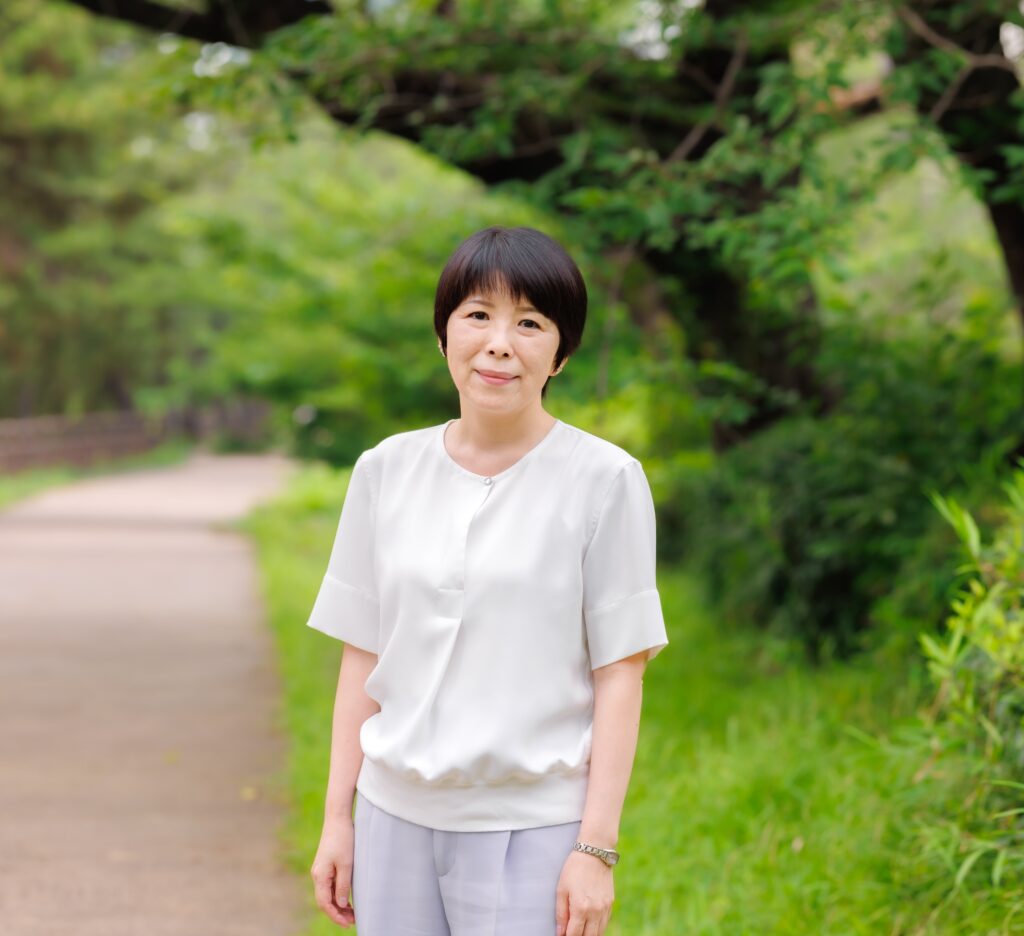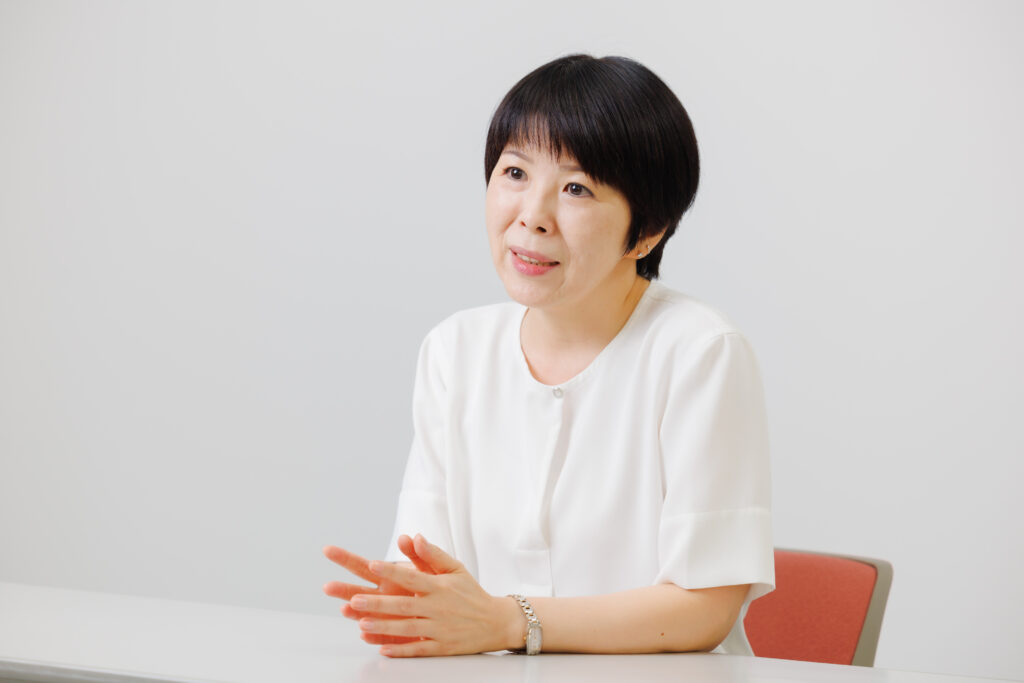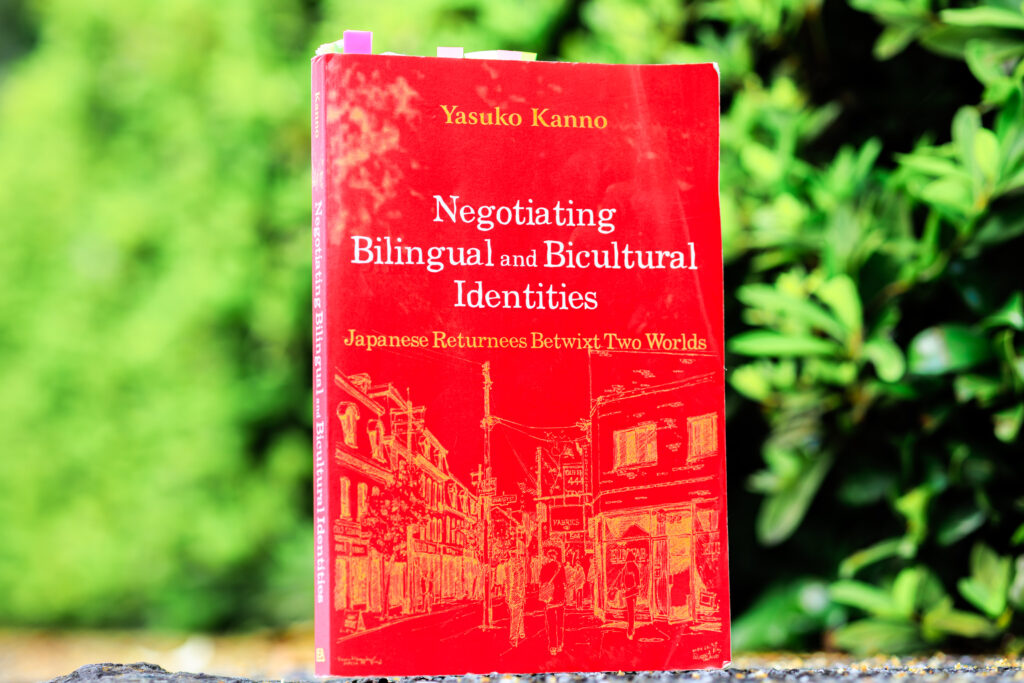
Professor Hanako Okada of the Faculty of Liberal Arts incorporates the method of narrative inquiry to uncover personal stories. She has studied the relationship between language and identity, discovering that many Japanese students who attend international schools in Japan have complex feelings towards their bilingual backgrounds rather than considering it as an advantage.
I am an applied linguist specializing in narrative inquiry. It is a flexible and interdisciplinary approach to elicit and examine accounts of personal experiences and make meaning from them. It captures the complexities of people’s lives and subjective experiences that other research methods, such as surveys and experimental studies, cannot sufficiently capture. I start by interviewing research participants as I value having them share their life stories in their own words. I typically conduct multiple interviews over an extended period of time, including individuals who have significantly influenced the participants’ lives. To add context and depth to their stories, I also incorporate an ethnographic approach, such as fieldwork, extended observations in real-life settings, collecting various artifacts, and writing reflexive accounts of the research process. While this method is time-consuming and labor-intensive, it is rewarding as it leads to discovering compelling stories and invaluable insights.
The complex languages and identities of international school students

One thread of my research is exploring the relationship between language and identity. One example is my study about Japanese students without overseas experience or foreign heritage who attend international schools in Japan. While some research has examined the experiences of students returning from overseas or from mixed backgrounds, no prior studies have been done with this target demographic.
My interest in languages emanates from my personal experience as a Japanese individual raised in a Japanese household but educated in English. Throughout my upbringing, I always had a lingering sense of being “in between languages.” I perceived my Japanese or English skills as less proficient than “native” speakers. Instead of embracing my bilingual background as a strength, I often felt a sense of inferiority. Motivated by these personal experiences, I researched the self-perception and attitude toward languages of Japanese high school students attending international schools. It became evident that they shared similar sentiments regarding their languages and identities.
My young research participants tended to think of identity as a static, either-or concept, often tied to nationalities. Consequently, they experienced a lack of belonging and felt that they did not belong in Japan or elsewhere. However, they found a sense of comfort and belonging with their peers from international schools, not only in Japan but worldwide, who shared “hybrid” identities. Despite the apparent diversity of international school communities, in fact, I found that they belonged to a relatively small and particular world.
Diverse FLA students
Similar to international schools, the FLA student body is diverse and unique. Students come from various cultures and educational backgrounds, and most are at least bilingual. Within a single class, there might be students from overseas who have been speaking English all their lives, those who have never left Japan and have only been educated in a Japanese school system, and those with English as a third or fourth language. I am interested in why students choose a program like the FLA and how these students’ languages and identities develop while exposed to the unique FLA learning environment.
In the FLA, I teach Core courses in academic writing, public speaking, and critical thinking. While these courses may not directly align with my research agenda, I share my knowledge and episodes with my students whenever relevant topics arise. I hope my experiences and research findings resonate with students who may have encountered similar challenges to my research participants. Furthermore, I aim to inspire multilingual students with multicultural backgrounds to be a driving force for positive changes in Japan.
Uncovering stories of people with illnesses and disabilities
Another thread of narrative research I am working on revolves around illnesses and disabilities. Due to the invisible nature of these conditions, the patients themselves, as well as those around them and even medical practitioners, fail to understand the struggles they are enduring.
Utilizing narrative inquiry, I explore how people with these illnesses and disabilities negotiate their conditions and experiences orally, as well as to understand how they make sense of their lives amidst these challenges.
The book I recommend
“Negotiating Bilingual and Bicultural Identities: Japanese Returnees Betwixt Two Worlds”
by Yasuko Kanno, Lawrence Erlbaum Associates

Through narrative inquiry, the book unravels the lives of Japanese returnees who moved from Canada to attend universities in Japan. Although it is a scholarly book, it captivates readers with intimate and personal accounts, reminiscent of the allure of a novel. It showcases the potential of academic books to be accessible, engaging, and pleasurable to read. Young Japanese students with similar backgrounds should resonate with these returnees and appreciate their stories.
-
Hanako Okada
- Associate Professor
Department of Liberal Arts
Faculty of Liberal Arts
- Associate Professor
-
Hanako Okada received her B.A. in Philosophy and Religious Studies from Sophia University and her M.A. and Ed.D. in TESOL and Applied Linguistics from Temple University. Her research interests include narrative inquiry, reflective personal narratives, and multilingual identities. Prior to taking up her current position in 2014, she taught in international schools in Tokyo and as an adjunct lecturer in the FLA.
- Department of Liberal Arts
Interviewed: June 2023